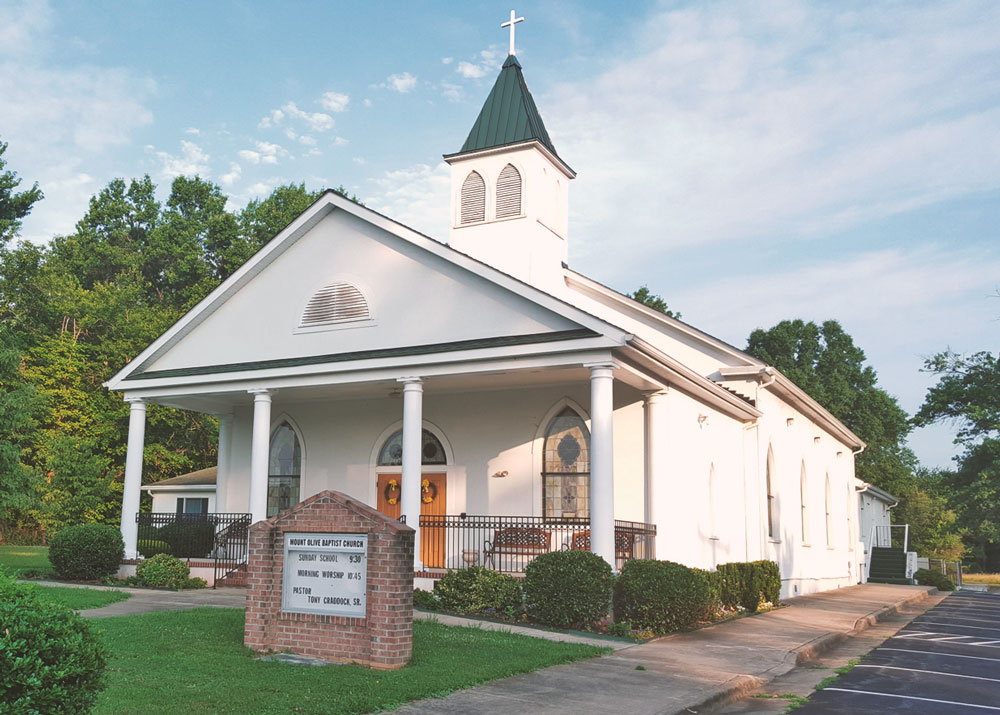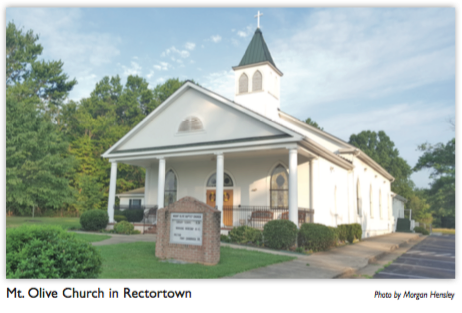Mt. Olive Baptist Endures and Prospers After All These Years

by Morgan Hensley
This is the first in an occasional series on the area’s predominately African-American churches.
Mt. Olive Baptist Church’s credo captures the rich history, endless devotion, and progressive outlook of its congregation. “We are proud to remember yesterday,” it reads. “We are glad to rejoice today. We have the faith to reach for tomorrow.”
“We were able to accomplish quite a number of things because we worked together,” said Rev. Norman W. Smith Sr., 88, who led the congregation for 50 years until his retirement in 2011. “We were united on a front to satisfy God and do it so that it was right and pleasing.”

In 1867, two years after the Civil War ended, residents of Rectortown, Fauquier County’s oldest village, joined together to begin the construction of Mt. Olive. Four years later, with Rev. Richard P. Dawson at the helm, the congregation convened for the first service.
Dawson’s initiative and foresight gave firm grounding to the African-American church amid the racial injustices of Reconstruction. Dawson oversaw the formation of the Sunday School, Bell Club and its first choir, and opened the church’s doors to schoolteacher Thomas Shorts to educate Rectortown’s children.
When the church burned down, Dawson inspired the congregation to rebuild the edifice. Outside of the church, Dawson helped establish the Northern Virginia Baptist Association in 1877, which is still in existence today.
Baptists subscribe to the doctrine of full immersion for the professing believer.
“We believe that, in order to be baptized and to do it legitimately, it must come from an intimate desire to be more like Jesus,” Rev. Smith said. “We also believe that the Bible calls for complete immersion—head to toe that means—all the way, and we don’t apologize for that.”
When Rev. Dawson passed away in 1921, he left a legacy spanning more than 50 years. To fill the vacancy, visiting ministers travelled to Rectortown by railway on the “Branch Line” that ran from Harrisonburg to Washington, D.C.
The church was relocated one-half mile up the road to its current location on the Atoka Road once construction finished on Sept. 17, 1911. The original location was used as school until the structure was demolished in 1924. Over the next 27 years, a series of pastors directed the congregation to establish the Missionary Society and construct a dining room and kitchen annex to the church.
In 1961, Rev. Smith, a 1960 graduate of Washington Baptist Seminary and a postal worker, was called to the pulpit to meet and preach.
“We heard each other a few more times over the next 50 years,” he jokes.
During his tenure, he saw Mt. Olive’s congregation transform from rural, to semi-rural, to a destination for urbanites raised with Sundays spent at the little white church. He sponsored a Boy Scout Troop, set up several choirs (one even bears his namesake: the N.W. Smith Chorale), and organized missions to Haiti, India, Kenya, and many other places. The mission work was a point of pride for Smith.
“We always found mission work that was meaningful, necessary, and on time,” he said.
The church added an indoor baptismal pool and stained glass windows. Although he led a movement against becoming a tithing church (one that requests 10 per cent of the congregations’ income), he helped find ways to support local charities, including Seven Loaves food bank.
“It takes a cooperative effort to do anything worth doing,” he said.
When Rev. Smith passed the torch to Rev. Tony J. Craddock Sr., he handed over a legacy.
“I thank God for the time He has given me to be a part of the local congregation,” Rev. Smith said. “And for blessing our congregation by allowing us to be a part of the community.” During the blizzard this past January, Rev. Craddock organized a “tele-church” so that members of the congregation could call in to rejoice and sing despite the dismal weather. With half a century under his belt, Rev. Smith left Rev. Craddock with sage advice: “As long as he applies himself with God in front of him, he’ll make it.”


